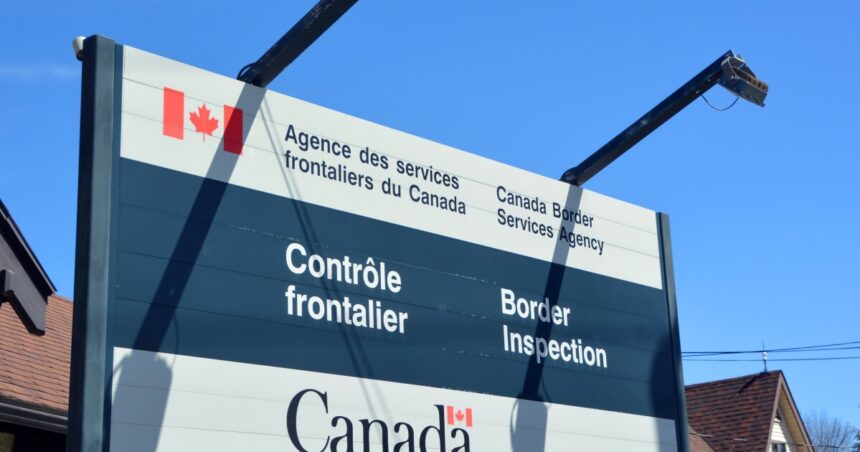Canadian border agents are getting ready to go on strike this Friday — potentially causing travel disruptions for nearly 400,000 people who cross the U.S.-Canada border daily — unless the government can reach a new labor agreement.
The Public Service Alliance of Canada and the Customs and Immigration Union, representing employees of the Canada Border Services Agency, have set a deadline of 4 p.m. ET for the country’s Treasury Board to come to an agreement at the negotiation table. If a new contract is not reached by then, over 9,000 CBSA employees will participate in a nationwide strike.
“We are optimistic that we can avoid strike action and any potential delays at Canada’s borders by reaching an agreement,” said Sharon DeSousa, PSAC national president. “However, time is running out for Trudeau’s Liberal government to work on a fair contract for our members.”
PSAC mentioned that border agents advocating for the new agreement have been without a contract for over two years. They are seeking a salary increase to match other law enforcement agencies in the country, as well as options for remote work, enhanced retirement benefits, and better workplace protections.
“Our members have shown overwhelming support for fair wages, improved retirement benefits, and creating a better working environment at CBSA,” said Mark Weber, CIU national president. “It’s time for the government to support CBSA employees.”
Psac members voted 96% in favor of a strike mandate in May, with mediation starting on June 3. The union stated that in the event of a strike, over 90% of essential front-line border officers would continue to provide basic services, but there is still a risk of slower traffic at the national entry points.
In 2021, a work-to-rule action caused significant delays at airports and borders until an agreement was reached after 36 hours of mediation between the government and border unions.
A strike would also disrupt the supply chain between the U.S. and Canada, where $3.6 billion worth of goods and services were traded across the border daily in 2023, as reported by Canada. According to the Bureau of Transportation Statistics, trucks carried 55% of the freight between the two countries in 2022.
The Canadian Trucking Alliance urged border employee unions and the federal government to reach an agreement to protect trade investments and the partnership with the U.S., especially amidst potential disruptions due to railway labor negotiations and challenges in the trucking sector.
The Treasury Board of Canada expressed disappointment on Wednesday over the looming strike threat, stating that it undermines bargaining efforts and disrupts the expected services for residents crossing the border.
If a strike occurs on Friday, the Mohawk Council of Akwesasne assured that the domestic lane would still be open from 7 a.m. to 11 p.m. daily, ensuring safe and efficient crossing for travelers. However, increased wait times, picketing, and union-related demonstrations are expected. The CBSA promised to address any delays promptly and provide updates to travelers through its website.





